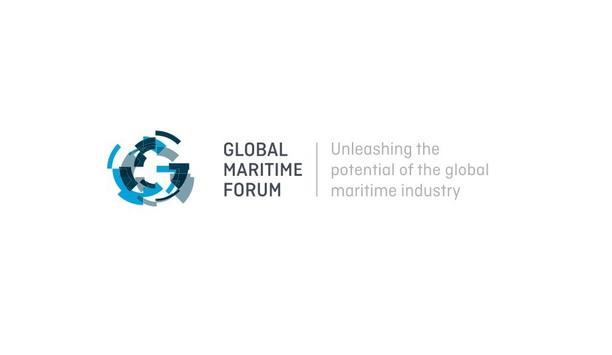Global Maritime Forum - Experts & Thought Leaders
Latest Global Maritime Forum news & announcements
International®, AkzoNobel's marine coatings brand, has published a new whitepaper on how data collaboration between fouling control coating experts and vessel operators can drive more informed decision-making, enhance vessel performance reliability and support sustainability goals for the fleet. The research includes a detailed case study of three Liquid Natural Gas (LNG) vessels tracked over a 60-month service period, all coated with Intersleek® 1100SR, an ultra-high performance fouling release coating based on biocide-free silicone technology. Results of the Intersleek 1100SR scheme Impressive results of the Intersleek 1100SR scheme over the 60-month period The whitepaper demonstrates, following a series of joint performance reviews, impressive results of the Intersleek 1100SR scheme over the 60-month period, and concludes that the vessels performed in compliance with agreed performance limits regarding energy efficiency and emissions expectations, including the Carbon Intensity Indicator (CII) rating. The application of Intersleek 1100SR on these vessels significantly contributed to maintaining a smooth and clean hull condition. Fleet of vessels and operations Underwater inspections further confirmed the exceptional performance of Intersleek 1100SR, with minimal biofouling observed across all vessels despite their exposure to challenging environments. The paper also explores how achieving consistency across a fleet of vessels and operations is complex and can yield different results despite similarities between vessel types and operational profiles. This requires high levels of communication, multiple methods of verification, and specialised expertise to support decision-making both before docking investments and while vessels are in-service. Carbon emissions and vessel efficiency Inaccurate data and insufficient transparency of data perpetuates a lack of trust between shipowners According to a report by the Global Maritime Forum, inaccurate data and insufficient transparency of data perpetuates a lack of trust between shipowners and those that supply data, such as charterers. This whitepaper highlights the necessity of companion datasets, like hull inspections to more accurately diagnose performance issues. At a time when increasing regulatory pressures to reduce fleet carbon emissions and improve vessel efficiency is paramount, the tailored and collaborative approach with vessel operators taken by International® contributed positively to long-term sustainability decisions and regulatory compliance. Hull and propeller inspections International® has developed a methodology aligned with ISO 19030 "Measurement of changes in hull and propeller performance" combining vessel performance metrics, Average Hull Roughness (AHR) measurements, underwater hull and propeller inspections, and operational data analysis which, the company says, allow for more accurate interpretation of performance trends and therefore more informed decisions for customers. International® is releasing the whitepaper, titled: ‘Optimising Vessel Performance for Decarbonisation Goals: Managing the Complexities of Hull Efficiency and Fouling Control with Data-Driven Decision Making’, whilst attending Sea Asia 2025 in Singapore, which takes place from 25-27 March. Performance of marine vessels International® has set a methodology aligned with ISO 19030, combining vessel performance metrics Dr Barry Kidd, Vessel Performance Manager at AkzoNobel, said: “This whitepaper emphasises the importance of collaboration with experts to enhance data transparency and confidence in inspection data, which is crucial for effective decision making.” “When it comes to analysing the performance of marine vessels, data is often variable, inconsistent, or incomplete. This makes it more difficult for ship operators to make informed decisions based on the best available information." Use of digital forecasting tool Barry Kidd added: "As the shipping industry faces increasing regulatory pressures to reduce carbon emissions, a tailored approach and partnership mentality to coating selection and fleet management is essential.” “Through our innovative coatings, hull performance team, data-driven insights and the use of our digital forecasting tool, we are uniquely positioned to be a reliable partner to shipowners, assisting them in making informed decisions in regulatory compliance and efficiency.”
Scheduled for February 18-19, 2025, at the AC Bella Sky Convention Centre in Copenhagen, the World Maritime Forum 2025 will gather industry pioneers, policymakers, and innovators to explore the future of global shipping. Recognised as a premier event in the maritime sector, the forum is dedicated to tackling critical challenges, while fostering collaboration and industry growth. Maritime trends and long-term prospects The conference will focus on essential topics like decarbonisation and clean energy adoption The conference will focus on essential topics such as decarbonisation, clean energy adoption, seafarer welfare, digitalisation, cybersecurity, ship recycling, maintenance, and repair. Through dynamic panel discussions, experts will present innovative strategies aimed at improving sustainability, operational efficiency, and resilience in maritime operations. Additionally, two high-level discussions will analyse global maritime trends and long-term industry prospects, providing actionable insights for adapting to evolving economic, regulatory, and technological landscapes. Latest technological solutions for maritime operations A key feature of the event is the exhibition area, where 50 exhibitors will showcase the latest technological advancements and solutions for maritime operations. Attendees will have the opportunity to explore innovations in green energy, cutting-edge maintenance tools, and digital platforms to help them stay ahead in an ever-evolving industry. Recognised as one of the most significant gatherings of the year, the World Maritime Forum 2025 offers an invaluable opportunity for networking, knowledge-sharing, and shaping the future of maritime trade. Secure a spot today and be part of the transformation driving the industry forward.
Norwegian Cruise Line Holdings Ltd. (NCLH) (the ‘Company’ or ‘Norwegian’), a renowned global cruise company, which operates Norwegian Cruise Line, Oceania Cruises and Regent Seven Seas Cruises, has announced its partnership with Global Maritime Forum, a global non-profit organisation committed to shaping the future of global seaborne trade to increase sustainable long-term economic development and human well-being. The new partnership closely aligns with the Company’s efforts to drive a positive impact on society and the environment through its global sustainability program, Sail & Sustain, including its commitment to pursue net zero greenhouse gas emissions by 2050. Norwegian Cruise Line joins Global Maritime Forum We are pleased to partner with the Global Maritime Forum and join its flagship initiative" “We are pleased to partner with the Global Maritime Forum and join its flagship initiative, the Getting to Zero Coalition, as we believe cross-sector partnership is a catalyst for innovation and effective change,” said Harry Sommer, President and Chief Executive Officer (CEO) of Norwegian Cruise Line Holdings Ltd. He adds, “We look forward to collaborating with other like-minded and solution-oriented stakeholders on meaningful initiatives to drive a positive change, strengthen resilience, accelerate decarbonisation efforts and best position the maritime industry for a bright future ahead.” Focus on key pillars - Efficiency, Innovation and Collaboration Earlier this year, the Company announced short- and near-term greenhouse gas (‘GHG’) targets to support its net zero by 2050 ambition and its revised climate action strategy, which focuses on three key pillars - Efficiency, Innovation and Collaboration. The new partnership highlights the Company’s commitment to the collaboration pillar as the Company plans to participate in a variety of initiatives led by Global Maritime Forum, including the Getting to Zero Coalition. The Getting to Zero Coalition Initially founded together with the World Economic Forum, Friends of Ocean Action and the Global Maritime Forum, the Getting to Zero Coalition is a powerful alliance of more than 200 organisations within the maritime, energy, infrastructure and finance sectors, committed to getting commercially viable deep sea zero emission vessels powered by zero emission fuels into operation by 2030 to support the industry in its journey towards full decarbonisation by 2050. The Company is also exploring engagement opportunities focused on human sustainability and inclusion across the industry. Cruise segment - key part of the global maritime industry We are pleased to welcome Norwegian Cruise Line Holdings as a Global Maritime Forum partner" “We are pleased to welcome Norwegian Cruise Line Holdings as a Global Maritime Forum partner,” said Johannah Christensen, Chief Executive Officer of Global Maritime Forum, adding “The cruise segment is a critical part of the global maritime industry, and we are confident that Norwegian will bring a diverse perspective and valuable expertise to our collaborative platform of maritime leaders.” The Global Maritime Forum Established in 2017, the Global Maritime Forum has served as a platform for dialogue and collective action, successfully bringing together influential decision-makers through its many working groups and workshops. One of the most significant initiatives led under the auspices of the Global Maritime Forum was the development of the Poseidon Principles, a framework which guides financial institutions in integrating climate considerations into lending decisions in line with the climate-related goals of the International Maritime Organization. Norwegian Cruise Line follows the Poseidon Principles To date, 30 financial institutions have joined the initiative, representing approximately $200 billion in loans to international shipping or over 70% of the global shipping finance portfolio. Since its inception, the Company has participated and provided data to signatory banks in alignment to the Poseidon Principles.










